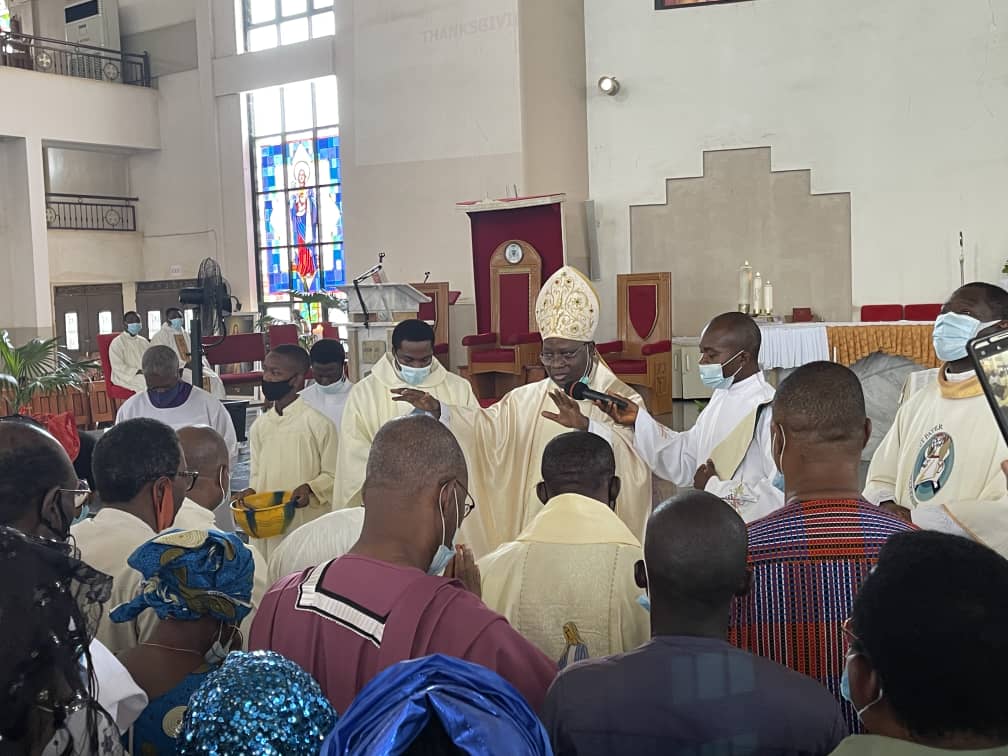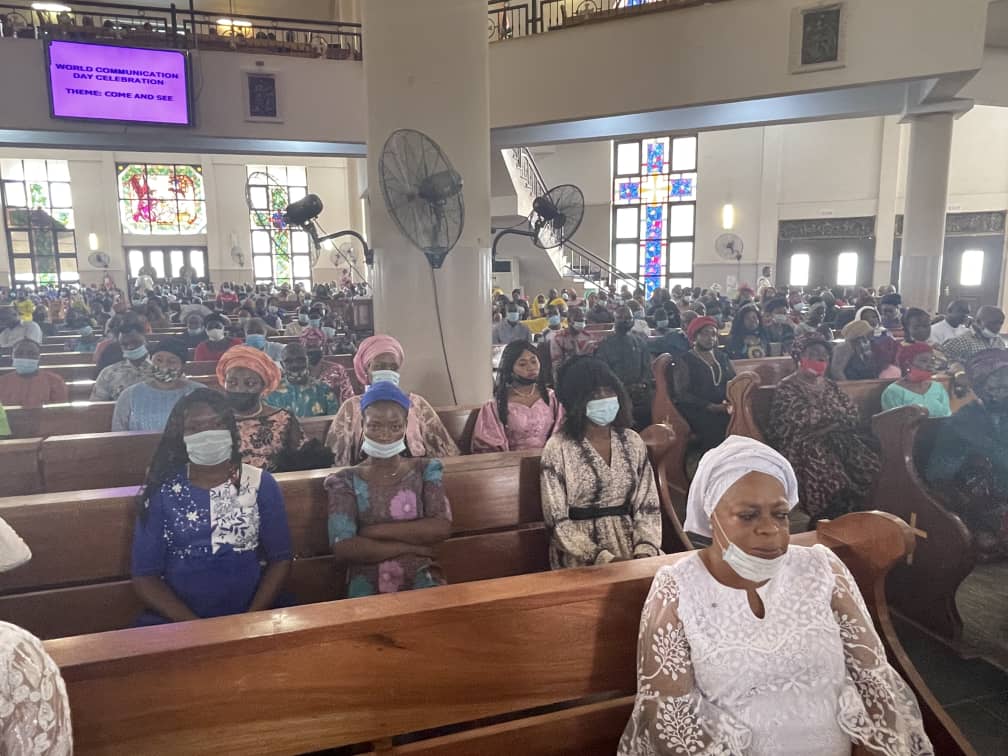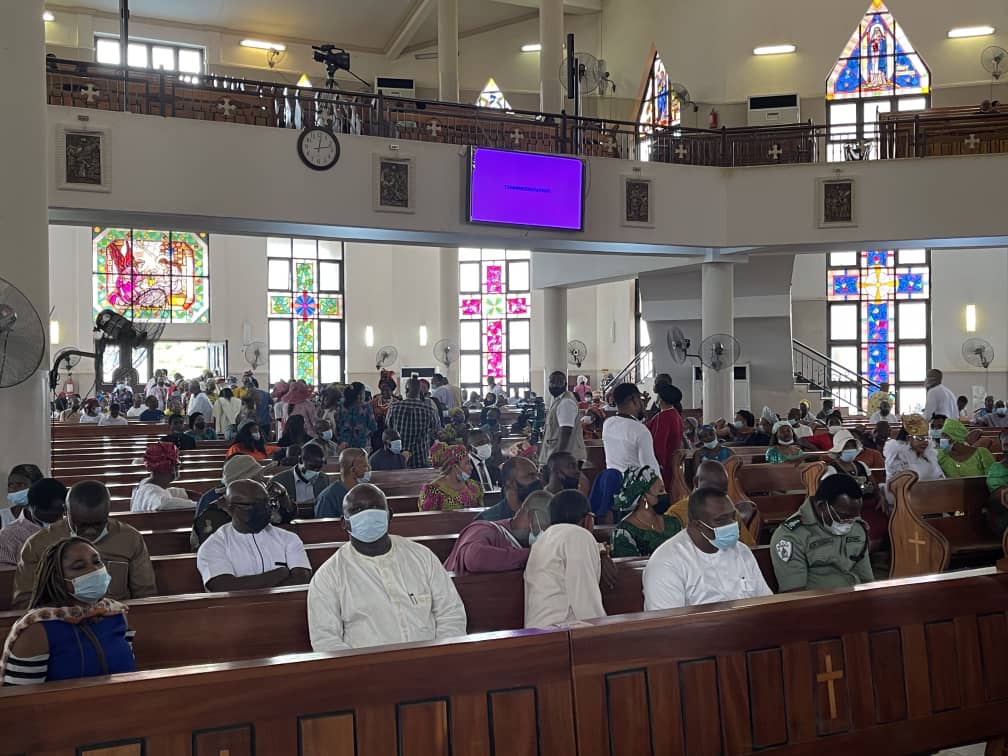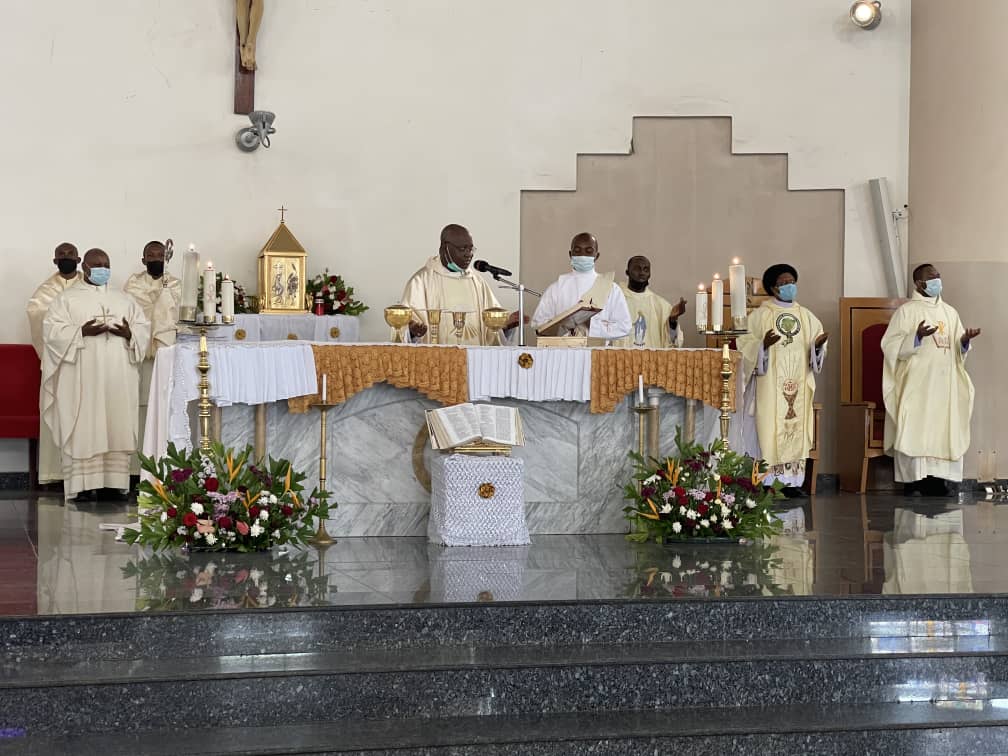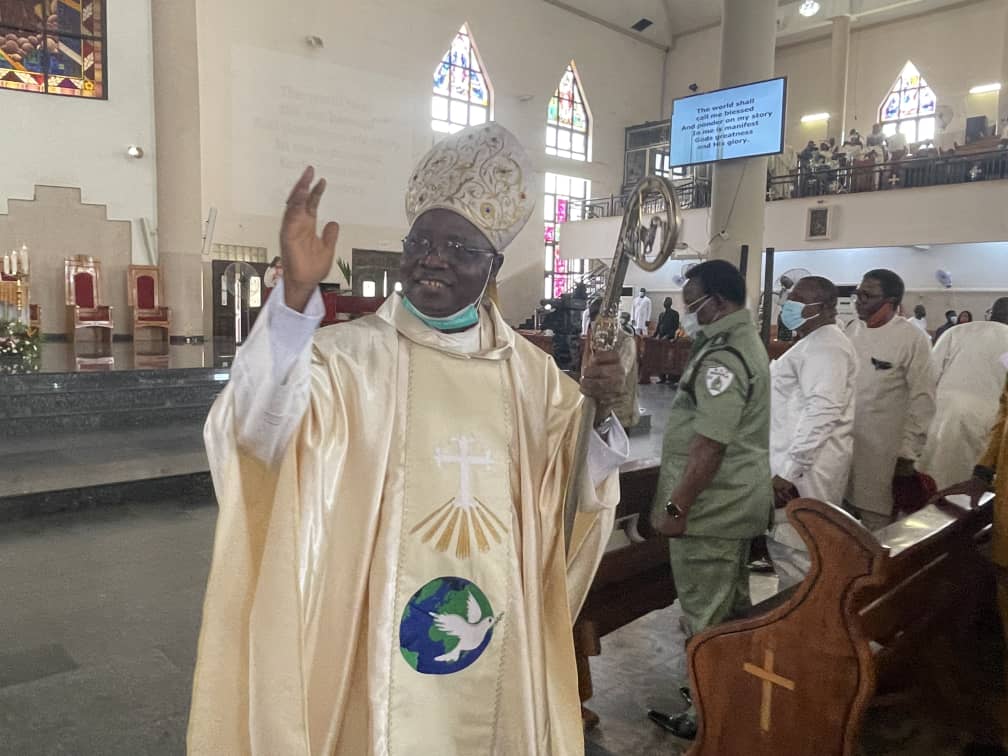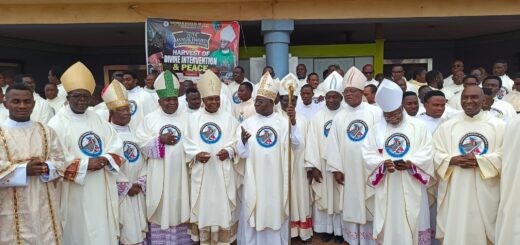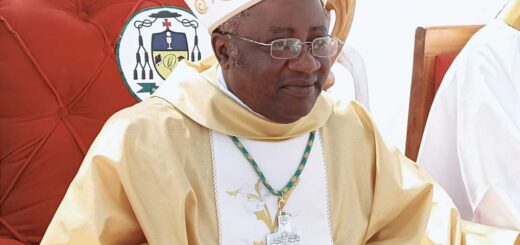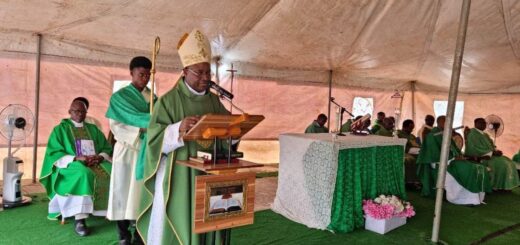Lessons from the election of Matthias for contemporary politics in Africa
by ARCH BISHOP · May 16, 2021
7th Sunday of Easter, Year B (World Communications Day). Homily by Archbishop I. A. Kaigama at Our Lady Queen of Peace Pro-Cathedral, Abuja, May 16, 2021.
Readings: Acts 1:15-17, 20-26; Ps. 102 (103): 1-2, 11-12, 19-20; 1 Jn. 4:11-16; Jn. 17: 11-19
The first reading today from Acts of the Apostles provides a window into the spiritual life of the early believers after the Ascension of Jesus. Returning from the Mount of Olives, the Apostles gathered in the upper room with the exception of Judas Iscariot who had committed suicide after betraying Jesus. The whole group “together with certain women” was “joined together”, and “with one accord” devoted themselves to prayer. This shows the spiritual bond and fellowship of the early Christian community, the infant church.
Peter led the group to elect the successor of Judas Iscariot. The manner of election demonstrated that they relied on scripture and prayer (cf. Ps 69:25, 109:8) to find a replacement for Judas. The election was based purely on merit: the person was to be a consistent follower of Jesus, throughout Jesus’ ministry, up to the day of His ascension. Two men were put forward. There was no lobbying; internal democracy was at play. The group prayed for guidance, proclaimed their trust in God and went on to cast lots and the lot fell on Matthias who became one of the Apostles.
There are lessons from the election of Matthias for contemporary politics in Africa: election must be peaceful, without electoral manipulation, partiality or ungodly conduct. The shoddy manner elections are conducted raise doubts about whether people’s votes count at all. The quest to win by hook or by crook, and the winner takes all syndrome explains why in a Local Government election in a State where a party has a sitting Governor, it is nearly always certain that their party will clear all the available seats, and this is often what lays the foundation for electoral violence, and the extravagant use of power and resources.
Today’s 55th World Communications Day with the theme: “Come and See” (Jn. 1:46). Communicating by Encountering People Where and as They Are” projects modern media communication as an asset that could help advance peace and order, but at the same time it can be used to instigate violence; it can also fuel prejudice and contempt between individuals and among peoples. As Pope Francis said in his message, “the risk of misinformation being spread on social media has become evident to everyone. We have known for some time that news and even images can be easily manipulated for any number of reasons…” In communicating, we must ensure objectivity, respect for human rights and dignity, the common good; avoiding hostility and confusion. There must be a responsible and accountable use of the media or else we breed anarchy and chaos.
The Holy Father enjoins media practitioners to resist the temptation of the manipulative use of the media by stirring tensions and heating up the polity to favour or satisfy certain interests at the expense of truth and objectivity. This will not bring to society the needed light, hope, consolation, healing, growth and progress. Today, we see all manner of half truths or bare lies in the social media, like the type that led late Miss Iniubong Umoren, a 26-year-old graduate of the University of Uyo job seeker who responded to a fake job advertisement, only to meet her brutal death. May her soul rest in peace.
Since I became the Archbishop of Abuja, I have passionately appealed to all Catholics to patronize our local television, the Catholic Television of Nigeria (CTV), and the Good Shepherd Newspaper, our channels of passing on pastoral, catechetical, spiritual and liturgical information to all Catholics within and beyond the Archdiocese, especially during this corona pandemic period. I urged all to install a CTV decoder in homes, parishes and offices. We reconstituted and reinvigorated the Communications Commission with the hope of narrowing gaps and fostering a greater communion among the different segments and apostolates in the Archdiocesan family. I am still calling on all Catholic media practitioners and other experts operating within the Archdiocese to volunteer more support, technical assistance, professional advice, etc, to strengthen our media platforms and coverage. We need to upgrade our CTV to the DSTV channel for wider coverage. The Archdiocese is looking for help towards this.
In today’s Gospel, Jesus prayed, “Holy Father, keep them in your name” (Jn. 17:11), namely, that the Father may keep us away from persecution and protect us against the attacks of Satan; to sanctify us in truth so as to be able to withstand evil. Jesus’ prayed for the unity of all Christians: “…that they may all be one…” the type of unity we prayed for when Christians in the FCT organized in January the prayer for Christian unity, rotating services each day in different denominational churches.
Let us add our prayer intentions today: we pray that the Lord will elicit in our leaders the sincere passion for service and a genuine quest for justice to salvage our dear country; we pray that during elections our votes will count; we pray that our youths will find employment; criminality to stop; political leaders to see the common good rather than parochial political interests; God to help our elected and public officials to be more patriotic and efficient so that religious leaders should be more concerned with prayers for the nation and explaining the word of God, instead of focusing on divisive “prophetic” political prognosis.
As we prepare for the celebration of Pentecost next Sunday, let us pray for the outpouring of the Holy Spirit upon us, that as “God has loved us so we must have the same love for one another” (1 Jn. 4:11) and to love our country without counting the cost.
